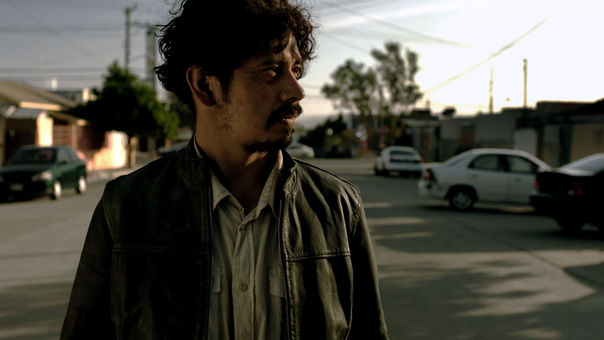The Death of Thought
Samuel Lagunas

Mente Revolver
In an extravagant exercise of alternative history, REVOLVER MIND imagines a time when Mario Aburto, convicted of the assassination of presidential candidate Luis Donaldo Colosio in 1994, is released from prison and goes back to working in a maquiladora in Tijuana. The risky premise is integrated with a triptych of characters who seek to confront the several fates they have been assigned by the system: Chicali (Hoze Meléndez), a musician, responsible for his dying grandmother, who is coopted by a group of criminals; Jenny (Bella Merlin), an American woman who crosses into Tijuana to sell a gun; and Mario (Baltimore Beltrán), an embittered social misfit with messianic aspirations.
The lightness of the treatment given these characters, who end up as the automat soldiers of an all-devouring narco-state, mounted on the uncertain visual scaffolding of the new Mexican cinema, combined with the futile comic-book diagnosis of the causes of the violence along the US-Mexico border, makes REVOLVER MIND one of the most iconic examples of recent Mexican cinema, dazed by its own persistent representation of violence (alongside Miss Bala [Gerardo Naranjo, 2011], Casa Caracol [Jean-Marc Rousseau, 2017], and Oso Polar [Marcelo Tobar, 2017]. The slogan “Don’t act, just think” has become an imperative for Mexican filmmakers who, rather than busying themselves with becoming statistics, ought really to reconcile themselves to the urgent task of critical thinking. “If you can’t help, get out of the way,” as the saying goes. Films like this one definitely just get in the way.
(translated by Gregory Dechant)

